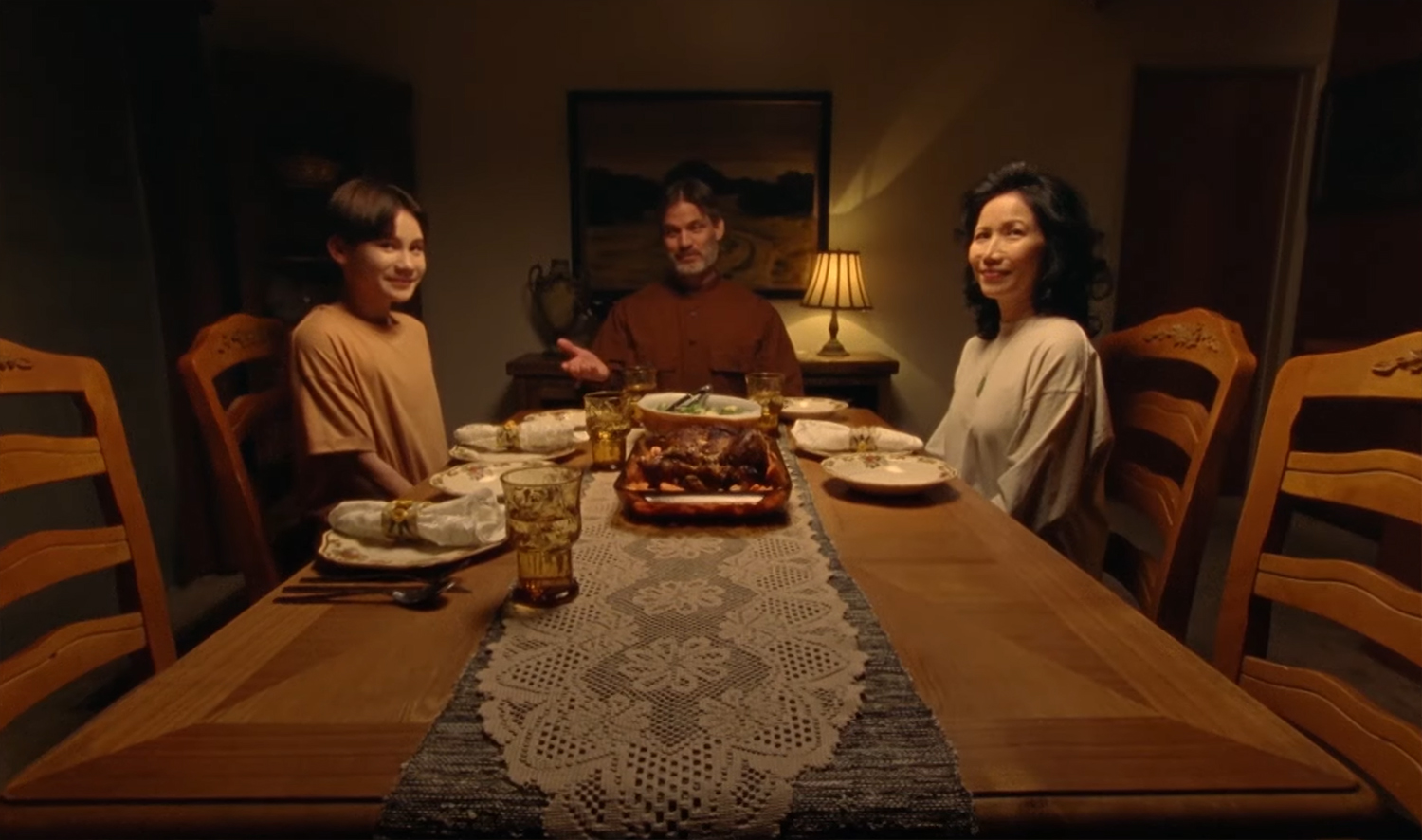Film Review: Daughter (2023)

When the pandemic film wars are over and the dust has settled over the land, leaving room for new tragedies to take the place of old ones, Corey Deshon’s Daughter will likely be counted among the many movies forgotten by film buffs and cinephiles, but that doesn’t mean it should be or that it isn’t worth seeing. Daughter may be flawed, but its retro cinematography and surprisingly tense moments of silence elevate it from merely a creepy, small-scale pandemic-inspired thriller to a potential art-house cult hit from which all kinds of meaning can be gleaned. There’s something intangible lurking within Daughter that gets under the skin and stays there for a while, and as uninviting as that may sound, I can’t help but want you to experience it for yourself all the same.
I suppose it was inevitable that the great COVID lockdown of 2020–22 (or thereabouts) would net us all manner of pandemic-related media. As is often the case when storytelling trends reach their zenith, the few will outshine the many, and the many will fight to be seen. This is true whether these inspired stories exist in the literal or the allegorical sense, but it’s those that fall between these thematic bookends that are often the most puzzling and, dare I say, thought-provoking. This middle ground is where Daughter lives: somewhere between a stylized and symbolic interpretation of life under quarantine and a very on-the-nose depiction of the uncertainty many of us felt in those early months (albeit with more menace and kidnapping than any of us experienced, hopefully).
As a pair of gas-masked assailants chase and kill a fleeing woman during the film’s opening credits, Deshon makes it clear from the start that the world we’re about to inhabit is capable of extreme violence. The vast scenery of this sequence, which takes place in a wooded area off an isolated mountain road, quickly gives way to claustrophobia as the story moves to a small house with dated-looking furnishings and fixtures. Among this sad beige and meticulous order, we meet “Father” (Casper Van Dien), who is white, and “Mother” (Elyse Dinh), a teenage “Brother” (Ian Alexander), and the newest member of the family, the recently abducted and chained to the garage floor twenty-something “Sister” (Vivien Ngô), who are all of Vietnamese descent.
Deshon keeps the details scant and open to interpretation, but we come to learn that Father has some very bizarre beliefs. For instance, according to Father, Brother is the key to humanity’s salvation, but for some reason needs a sister around in order to fulfill his destiny. Why this is so, how Brother is to save us all, and why Father’s captors are all Asian are never made clear, but these details become less and less important as we get to know the “family,” their motivations, fears, and secret defiances.
Complementing his peculiar and enigmatic premise, Deshon maintains the mystery with a number of long takes composed of nervously hushed conversations between Mother and Sister. These well-acted small acts of rebellion shed some light on the strange events but cleverly never answered all of our questions. As the head of the household, Van Dien works surprisingly well as a pseudo-religious cult leader and control freak – so much so that I didn’t even realize it was good old Johnny Rico from Starship Troopers until well into the second act.
Contrasting Van Dien, Dinh, and Ngô is Alexander, whose baby-faced naivete and utter lack of questioning might be the creepiest part of the film. There’s something about this fresh-faced youngster eagerly abetting kidnapping, violence, and doomsday preaching that uniquely unsettles me to the point of near fascination. Then, add to that the amazingly hypnotic dance routine Brother and Sister perform for their “parents” near the end of the film, and Daughter propels itself into a niche category of truly curious films.
Its unanswered questions and somewhat uneventful ending may prove too much to overcome for some viewers, but Daughter isn’t meant to be pigeonholed or easily explained. Where some might find its esotericism a frustrating or annoying blemish, I find it, along with the wonderful way in which it was shot and colored, to be part of its weird charm. To be honest, I wish more movies looked this good and were left this open-ended.

